| |
Bob Carpenter
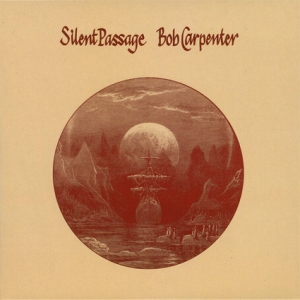
Silent Passage
Reprise - 1975
Mike Milner
|
Guitarist Bob Carpenter was a Canadian folk singer and songwriter active in the early 1970s. Carpenter was born and raised in the North Bay area of Ontario but is generally associated with the West Coast. Although not well known, even during his performing years, he was well respected by his peers, with artists such as Emmylou Harris and Billy Joe Shaver recording his songs.
His early years are somewhat murky. When he was two, his family split up and Carpenter grew up in foster homes. He would later join the navy, but was discharged for mischievous conduct while drunk on leave in Edinburgh. He would eventually make his way to Toronto, and like many other Canadian 'folkies' - Joni Mitchell, Neil Young, and Gordon Lightfoot to name a few - he started out in the city's bustling Yorkville neighbourhood in the mid-sixties.
In 1970, he somewhat mysteriously appeared at a farewell party for the Festival Express, the cross-country drugs-and-alcohol-laced rock and roll adventure that featured, among others, Janis Joplin, the Grateful Dead, the Band, the Flying Burrito Brothers and Ian and Sylvia's Great Speckled Bird. Carpenter's performance was impressive enough to merit special recognition in Rolling Stone.
"After the final Festival at Calgary, a young guitarist mysteriously showed up at the York Hotel where the farewell party was taking place," Rolling Stone's correspondent wrote, "and with the deep and painful voice of some Ancient Mariner performed songs of unbelievable dignity. No one knew his name. He said: 'It doesn't matter the kind of music I play. Your mind sort of melts and becomes that one place of beautiful bliss which is the only place to be.'"
Carpenter did some demos in Toronto in the early seventies with Neil Young's producer, David Briggs. He also spent time with Briggs in Southern California, hanging out with the likes of Spirit and Buffalo Springfield, and taking in local live acts like Taj Mahal, the Byrds and Flying Burrito Brothers. In 1972, Carpenter, then 26 years old, spent the winter in a remote cabin in British Columbia. When he emerged, he started performing his new songs to rapt audiences, becoming as one record company bio described him a "familiar figure with the Canadian coffee-house circuit". He signed a contract with Warner Brothers in 1974, which led to recording sessions in Los Angeles with noted Canadian producer Brian Ahern. The result was the cult classic LP, Silent Passage.
For the recording of Silent Passage, Ahern had assembled a first-rate group of musicians to support Carpenter. Among them, there was Little Feat's Bill Payne and Lowell George on piano and slide guitar, respectively, and guitar ace Buddy Cage on pedal steel. Session musician-extraordinaire Lee Sklar supplied bass and Russ Kunkel helped out on drums. Emmylou Harris, Dianne Brooks and Anne Murray (yes, our Anne Murray) supplied backing vocals.
On listening to Silent Passage, it seems one could not have found a more sympathetic musical partner than Ahern. The production is not lush, but the instrumentation provides support and context to Carpenter's sparse guitar and vocals. His voice has to be heard; the gentle intensity and sincerity is stunning. Comparisons do not come easily. Perhaps one can detect a hint of Harry Chapin here and some Bob Dylan there, but really, Carpenter was his own man, and these are his songs.
He was not at all a technical singer. But the songs on Silent Passage were written to provide a vehicle for the stories he wanted to tell, and the ability to tell those stories through his own voice was his strength. Although all the tracks are outstanding, the title cut simply knocks it out of the park. 'Silent Passage' is a meditation on wanderlust and self-discovery, which Carpenter delivers in his typically fragile, achy vocal. It is a wonderful tune, in which he sings of his need to travel, only to realize in the end that "it's only coming home that brings you near [and] it's only coming home that brings the tears".
For whatever reason, Silent Passage was not issued at the time (though a few copies on Reprise did manage to slip out). But Carpenter had his supporters, and in 1984 the album finally saw the light of day, thanks to Holger Petersen and his Canadian label, Stony Plain Records. It has since been reissued on CD and again on vinyl.
Carpenter was a very spiritual person, and it seems in the years after the recording of Silent Passage, he decided to move on from the music business to pursue a more religious life. He died quite tragically and far too early to cancer when he was only 50. I am a very recent convert, and so I admit I may lack objectivity. But Silent Passage really is extraordinary and the music on it definitely deserves recognition.
|
|
Suggestions
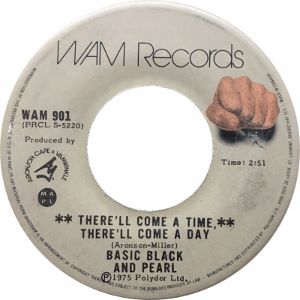
Basic Black and Pearl
There'll Come a Time, There'll Come a Day / He's a Rebel - 7"
WAM
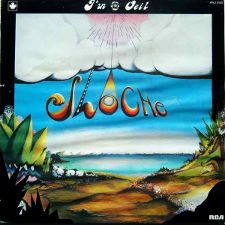
Sloche
J'un Oeil
RCA
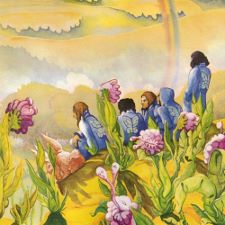
Harmonium
Si On Avait Besoin d'une Cinquieme Saison
Celebration
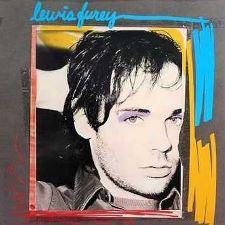
Lewis Furey
Lewis Furey
Aquarius
|








